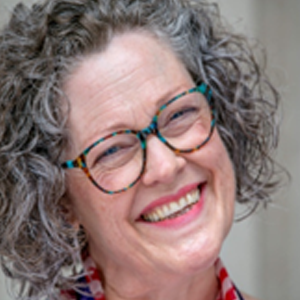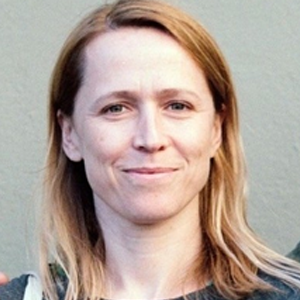CHeCR early career researchers
CHeCR has a thriving community of doctoral students and early career researchers. Read more about the work of our research community below.
Clare Jouanny
PhD title: 'POP: the question?' Developing an intervention to raise awareness of pelvic organ prolapse (POP) in primary care and to encourage women to seek help sooner.
Funder: ESRC
Clare Jouanny, a pelvic health physiotherapist, is undertaking ESRC-funded PhD research to develop an intervention that raises awareness of pelvic organ prolapse in primary care and supports early health care seeking. She has completed a survey and interviews with primary care professionals across three Scottish Health Boards to explore their experiences, attitudes, and practices around diagnosing and managing women with prolapse, and their views on the proposed intervention. The final phase will involve Think Aloud interviews and online discussion boards with clinicians to refine the intervention, prior to planning a pilot study (post doc).

“I have had a very positive experience within the research environment at CHeCR. The weekly team meetings are inclusive and engaging, offering a valuable space for everyone -from Professors to ECRs/ PhD students to share updates and hear from internal and external speakers. The leadership team is open, transparent, and values the input of ECRs. I was invited to observe and contribute to Senior Leadership meetings over six months, which gave me valuable insight into the operational and strategic aspects of running a research centre.”
Nicola Glennie
PhD Title: Until I feel the need: Investigating the coping strategies and interaction with healthcare of people living with Motor Neurone Disease
Funder: ESRC
We know that coping with a diagnosis of Motor Neurone Disease or Amyotrophic Lateral Sclerosis can be hard, but we don’t know the best ways of helping people to cope. The MND Diary project, collected 22 hours of interviews and 150 pages of diaries documenting 3 - 6 months of the everyday experiences of 13 people with Motor Neurone Disease, living throughout the United Kingdom. Additionally, interviews with 5 family members and 2 focus groups with healthcare professionals provided rich insight into what helped and what did not help people to feel supported and live a good quality of life.

“The research environment at CheCR is very supportive. Everyone shows interest in the ECR projects and there are great opportunities to share your work and learn from the wide range of skilled and experienced supervisors and researchers based in CHeCR”.
Paweena Tivasiripong
PhD Title: Developing antenatal care services for pregnant migrant workers in the Eastern Economic Corridor, Thailand
Funder: Burapha University Thailand
This descriptive qualitative study explores barriers to antenatal care for migrant pregnant women in Thailand, focusing on Burmese workers who represent the largest share of the migrant labor force. Despite their high numbers, access to maternity care is limited by language barriers, legal status, costs, and travel difficulties. The research seeks to develop a culturally appropriate, inclusive, and accessible antenatal care model. Conducted across three hospitals in eastern Thailand, it uses interviews, observations, and workshops with women, healthcare providers, and leaders. Findings will inform strategies to improve maternal health outcomes, reduce complications, and strengthen Thailand’s overall healthcare system.

“My PhD journey at CHeCR has been enriching, with a research environment that fosters growth, critical thinking, and meaningful collaboration.”
Catherine Cairns Leyman
PhD Title: Understanding Self-Management and Support for Young People with Chronic Musculoskeletal Pain
Funder: ESRC
My PhD explores how adolescents aged 13–18 and their families in the UK experience and navigate the self-management of chronic musculoskeletal pain. The first phase is a qualitative evidence synthesis examining how young people describe their pain, communicate it to others, and manage it in everyday life. This will inform a second phase of primary research involving interviews with adolescents and families. The project foregrounds identity, emotion, and relational context, aiming to contribute to more youth-centred, developmentally sensitive approaches to chronic pain care. It draws on grounded theory, thematic synthesis, and lived experience perspectives.

“CHeCR has offered me a grounded yet generous space to grow as a qualitative researcher. The environment encourages depth, reflection, and rigour - while making room for curiosity and care.”
Olivia Boulton
PhD Title:
Funder:
I am a PhD researcher investigating the retention and wellbeing of emergency department nurses. My work explores the complex system of factors influencing why nurses leave or stay, and where interventions might improve working lives. Using Participatory Systems Mapping (PSM), I am engaging nurses directly to co-create a map of the pressures driving turnover and retention. I am also using Structural Equation Modelling (SEM) to test how different dimensions of wellbeing are linked to nurses’ intention to leave. This project aims to generate practical insights to support wellbeing, improve retention, and sustain emergency health services.

“CHeCR has been really welcoming and supportive, with colleagues taking an interest in my project and sharing their experience and advice. It’s also been rewarding to learn more about the research being done by others”.
Gill Moncrieff
PhD Title: REMAIN: REsearching why Midwives stAy or leave to Improve retentioN
Funder: Chief Scientist Office
Gill Moncrieff is a midwife funded by the Scottish Government Chief Scientist Office. Her PhD is the REMAIN (REsearching why Midwives stAy or leave to Improve retentioN) project, which is designed to explore factors that influence leaving intentions for midwives, to develop a strategy to increase retention. This involves a scoping review exploring previous research on retention in midwifery, interviews with midwives across the UK, and a workshop with her Intervention Development Group to develop and refine recommendations from the research.

Claire Torrens
PhD Title:
The over-arching aim of my project is to better understand the influence of user-provider relationships, including researcher-participant relationships, upon retention within studies of behavioural weight management interventions (BWMI). There are two key stages to my project. The first is a review of reviews or overview of the influence of relationships in BWMI. The second stage is a study within a trial (SWAT), including a process evaluation. This explores retention by evaluating the effect of two weight assessment approaches, undertaken at 3- and 6- months follow-up assessments, on attendance at 12 months within a 3-group text-based BWMI trial (Game of Stones).

Gertrude Banda
PhD Title: Developing career pathways for Nurses, Midwives and allied health professionals clinical academic roles in Scotland
Funder: NHS Education Board for Scotland/ University of Stirling
Nurses are the largest professional group in the NHS but the group least likely to apply for major research funding and least likely to lead research projects. Nurses and other Allied Health Professionals have the ability to identify important research topics and lead important improvements in patient experience/outcomes but, in Scotland, there is little infrastructure to support this endeavour. My PhD studies are exploring the development of clinical academic career pathways for NMAHPs in Scotland.

Anna Sierka
PhD title: The development and initial validation of a screening scale for frailty within prison settings
Funder: Strathcarron Hospice/ University of Stirling
The UK prison population is ageing, with increasing numbers experiencing frailty and complex health needs. However, no validated frailty scale exists for use in the prison settings, limiting the ability to identify individuals who may require targeted interventions, long-term support, or end-of-life care.
As part of my PhD, I will use a mixed-methods design and the Delphi technique to define the key domains and characteristics of frailty within the prison environment; develop a frailty screening scale; and conduct preliminary psychometric validation of the scale. The studentship is being undertaken in collaboration with the Scottish Prison Service and Strathcarron Hospice.
“I am excited to join the CHeCR research centre and have felt welcomed and supported from the very beginning of my PhD journey. It’s a privilege to be part of a team with such rich interdisciplinary expertise, spanning healthcare delivery, policy, and community health and wellbeing. I look forward to learning from colleagues across diverse fields and contributing to research efforts that drive meaningful change in healthcare access and health outcomes.”
